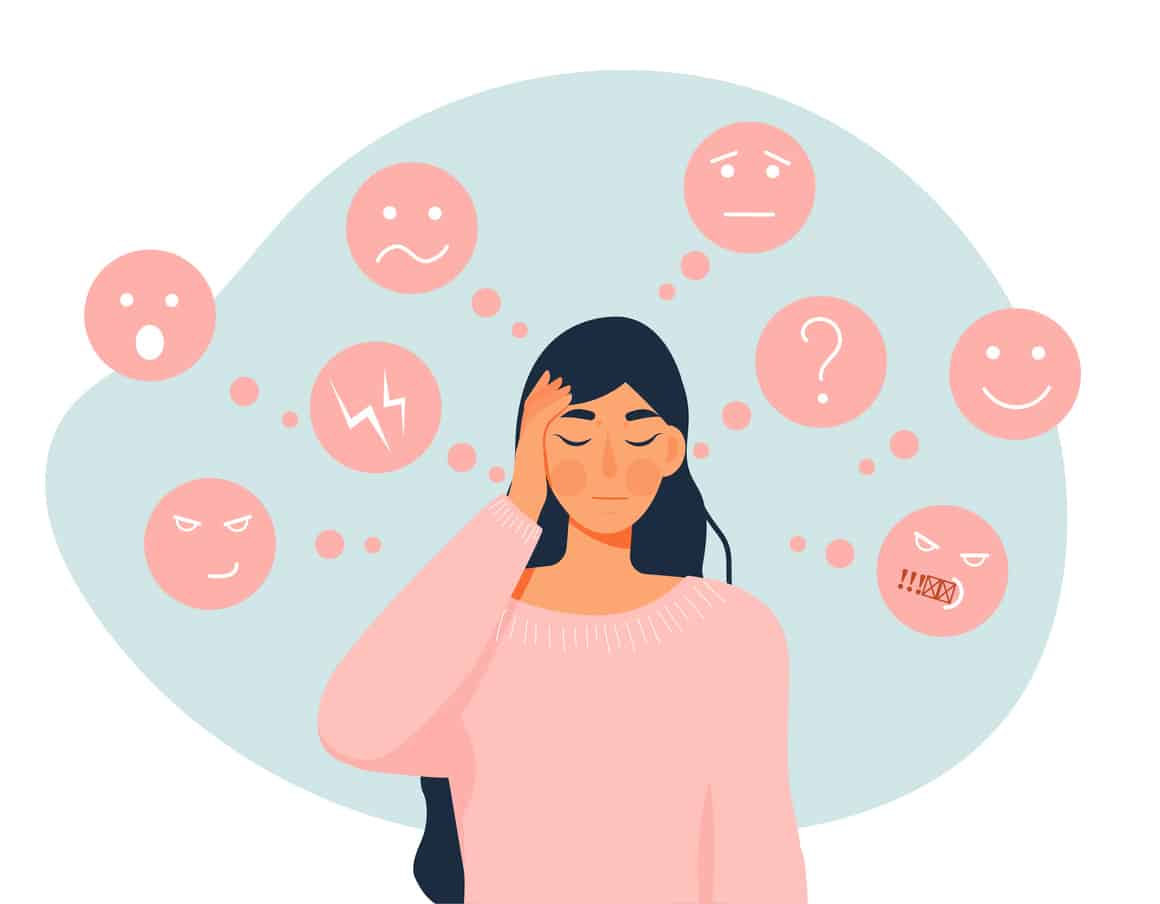
Balancing Act: Hormonal Imbalance & Its Effect on Mental Well-Being
If you’ve been feeling physically and emotionally imbalanced, it could be more complicated than you think. Your hormones play a crucial role in regulating various bodily functions, including your mood, emotions, and overall mental well-being. When these delicate chemical messengers become imbalanced, the effects can be far-reaching, impacting your psychological and emotional state in profound ways.
Today, The OB/GYN Associates of Alabama will explore the intricate connection between hormonal imbalance and mental health and discuss effective management strategies to help you restore balance and achieve optimal mental well-being.
Common Symptoms of Hormonal Imbalance
Hormonal imbalances can manifest in a wide range of physical and psychological symptoms, including:
- Mood swings and emotional instability
- Anxiety, depression, and irritability
- Fatigue, lethargy, and lack of energy
- Difficulty concentrating and memory lapses
- Sleep disturbances, such as insomnia or excessive sleepiness
- Unexplained weight gain or loss
- Irregular menstrual cycles or menopausal symptoms (for women)
- Decreased libido and sexual dysfunction
It’s important to recognize that these symptoms can vary in severity and may present differently for each individual, depending on the specific hormones affected.
Understanding Hormonal Imbalance & Its Impact on Mental Health
Hormonal imbalances can have a profound impact on your mental health, as these chemical messengers play a crucial role in regulating your emotions, mood, and cognitive function. When your hormones are out of balance, it can lead to a range of mental health challenges, including:
Mood Disorders
Hormonal fluctuations can contribute to the development of mood disorders, such as depression and anxiety.
Cognitive Impairment
Hormonal imbalances can affect your ability to focus, concentrate, and make decisions, leading to cognitive difficulties.
Emotional Dysregulation
Hormonal changes can cause emotional instability, leading to mood swings, irritability, and difficulty managing emotions.
Stress and Anxiety
Hormonal imbalances can increase your body’s stress response, heightening feelings of anxiety and tension.
Sleep Disturbances
Hormonal fluctuations can disrupt your sleep-wake cycle, leading to insomnia or excessive sleepiness, which can further exacerbate mental health issues.
The relationship between hormones and mental health is complex and multifaceted. Hormonal imbalances can both contribute to and be influenced by mental health conditions, creating a cyclical pattern that requires a comprehensive approach to address.
The Hormone-Mind Connection: How Hormones Affect Emotions & Mental Well-Being
Hormones are chemical messengers that play a crucial role in regulating various bodily functions, including mood, emotions, and cognitive abilities. These powerful molecules interact with the brain, influencing the production and balance of neurotransmitters, which are responsible for transmitting signals between nerve cells.
For example, the hormone estrogen has been linked to the regulation of serotonin, a neurotransmitter that plays a vital role in mood and emotional regulation. Fluctuations in estrogen levels can lead to changes in serotonin production, contributing to mood swings, depression, and anxiety.
Similarly, the hormone cortisol, often referred to as the “stress hormone,” can significantly impact your mental well-being. When your body is under stress, cortisol levels rise, triggering a cascade of physiological responses that can lead to feelings of anxiety, irritability, and difficulty concentrating.
Other hormones, such as thyroid hormones, testosterone, and progesterone, also play crucial roles in maintaining mental and emotional balance. Imbalances in these hormones can contribute to a wide range of mental health issues, including cognitive impairment, mood disorders, and changes in libido.
Managing Hormonal Imbalance for Better Mental Health
Seeking to balance your hormones can benefit every aspect of your life. Here are some strategies you can implement to manage hormonal imbalances and promote better mental health:
- Seek Professional Guidance: Work closely with your healthcare provider, such as an OB/GYN, to identify the underlying causes of your hormonal imbalance and develop a personalized treatment plan.
- Adopt a Healthy Lifestyle: Exercise regularly, maintain a balanced diet rich in nutrient-dense foods, and practice stress-management techniques like meditation, yoga, or deep breathing exercises.
- Manage Stress: High levels of stress can exacerbate hormonal imbalances and contribute to mental health issues. Implement stress-reducing activities and seek support when needed.
- Prioritize Sleep: Ensure you get enough quality sleep, as sleep disturbances can disrupt your hormonal balance and negatively impact your mental well-being.
- Consider Supplements: Certain supplements, such as omega-3 fatty acids, vitamin D, and herbal remedies, may help support hormonal balance and improve mental health. However, it’s essential to consult with your healthcare provider before starting any supplement regimen.
By taking a proactive approach to managing your hormonal health, you can effectively address the underlying causes of your mental health challenges and achieve greater overall well-being.
Treatment Options for Hormonal Imbalance & Associated Mental Health Issues
Depending on the specific hormonal imbalance and its impact on your mental health, your healthcare provider may recommend a range of treatment options, including:
Hormone Replacement Therapy (HRT)
For conditions like menopause or andropause, HRT can help restore hormonal balance and alleviate associated mental health symptoms.
Medication
Prescription medications, such as antidepressants or anti-anxiety drugs, may be used to manage mental health issues related to hormonal imbalances.
Lifestyle Modifications
As mentioned earlier, adopting a healthy lifestyle, managing stress, and prioritizing sleep can significantly improve hormonal imbalances and mental well-being.
Complementary Therapies
Integrative approaches, such as acupuncture, herbal medicine, or mind-body practices, may be used in conjunction with conventional treatments to support hormonal balance and mental health.
It’s important to work closely with your healthcare provider to determine the most appropriate treatment plan for your individual needs, as the approach may vary depending on the underlying cause of your hormonal imbalance and the associated mental health concerns.
Taking Control of Your Hormonal Health for Improved Mental Well-Being
Hormonal imbalances can have a deep impact on your mental health, affecting your mood, emotions, and cognitive function. Taking proactive steps to address hormonal imbalances can unlock the path to better mental well-being and an enhanced quality of life.
Work closely with a trusted healthcare provider, such as the experienced team at OB/GYN Associates of Alabama, to develop a personalized plan that addresses your hormonal imbalances and supports your overall mental well-being. With all the resources available at your fingertips, restoring balance in your life is possible!
_____________________________________________________________________________________
Restore Balance Experience Personalized Hormone Solutions at OB/GYN Associates of Alabama in Birmingham, AL!
Are you struggling with hormone imbalance and its impact on your well-being? At OB/GYN Associates of Alabama in Birmingham, AL, we specialize in providing tailored solutions to address hormonal issues. Our experienced team understands the complexities of hormonal health and is dedicated to helping you regain balance and vitality.
We are committed to guiding you toward optimal hormonal wellness. Schedule a consultation with us today to take the first step toward reclaiming your health and vitality.
To schedule, you can request an appointment online today or give us a call at (205) 271-1600.


